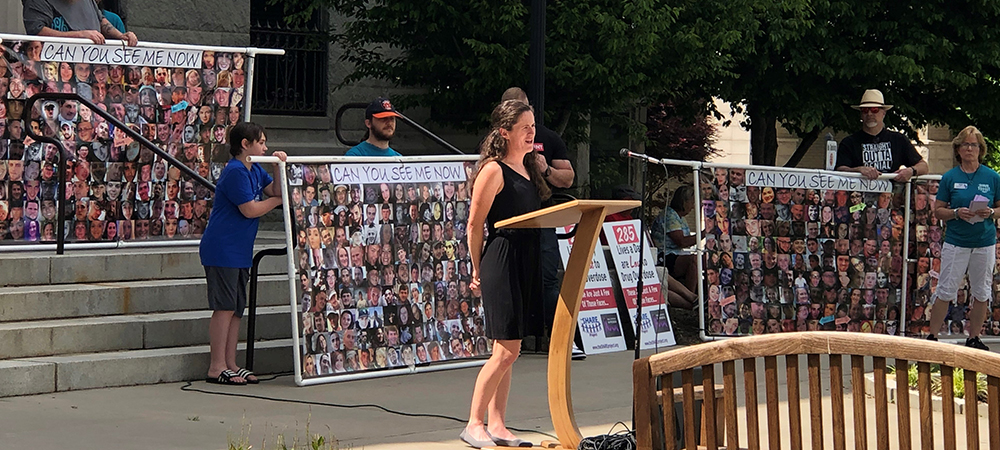
Community Engagement



The opioid epidemic can be viewed like a swiftly moving river that has a lot of momentum and requires a comprehensive and coordinated community effort to dam and redirect. Community awareness and prevention initiatives, like North Carolina's More Powerful NC campaign, are upstream efforts that help slow the river so that family and community members don't fall into addiction in the first place.
MAHEC’s medical experts and educators regularly participate in community town hall meetings, youth summits, and public presentations to increase community awareness about the importance of
To request a speaker or educational program for your organization or community event, please fill out our Opioid Education Request form.
Closer Than You Think: Buncombe County’s campaign raises awareness about risks associated opioid use. Includes educational materials, a speaker’s bureau, and local treatment and recovery resources.
More Powerful NC: This statewide campaign provides guidance on the safe storage, use and disposal of pain medications as well as overdose prevention, treatment and recovery resources.
Partnership for Substance Free Youth in Buncombe County: This coalition hosts community awareness events and has compiled a variety of educational resources to support teens, parents, schools, and the community.
Urgent care for mental health and substance use crises, 8:00 am - 8:00 pm. Crisis Line: 828-254-2700
Mobile Crisis ManagementOn-site intervention and stabilization of mental health, substance use, and developmental disability crises. 24-Hour Crisis Service: 1-888-573-1006.
NC 2-1-1Links to local resources including food, housing, utilities, counseling, healthcare and more. Dial 2-1-1 or 888 - 892-1162.
Vaya HealthSupports mental health, substance use, and intellectual/developmental disability needs in Western North Carolina. 24-Hour Hotline: 1-800-849-6127.
Local Pharmacies: Many pharmacies can provide you with a Narcan® kit without a prescription. The kit, which can help reverse an accidental opioid overdose, may be covered by your insurance. Just ask your pharmacist.
The Steady Collective297 Haywood Street, Suite #2, Asheville, NC 28801, 800-898-5801
Western North Carolina AIDS Project (WNCAP)554 Fairview Road, Asheville, NC 28803, 828-252-7489
297 Haywood St, Asheville, NC 28801, 828-552-3858
Asheville Police Department lobby
Buncombe County Courthouse & Sherriff’s Office lobbies
Free testing by appointment: 828-250-5000
WNCAPFree and confidential testing by appointment: 828-252-7489
Syringe services programs have been shown to reduce the transmission of serious diseases like HIV and hepatitis C and increase the likelihood that substance users will seek treatment services.
Buncombe County Health and Human ServicesIntegrated and mobile; call or text Tanasia Boyd for details: (828) 747-9483
WNCAPAsheville, Franklin, and far west WNC: 828-775-4873
The Steady CollectiveMobile distribution in Asheville.
